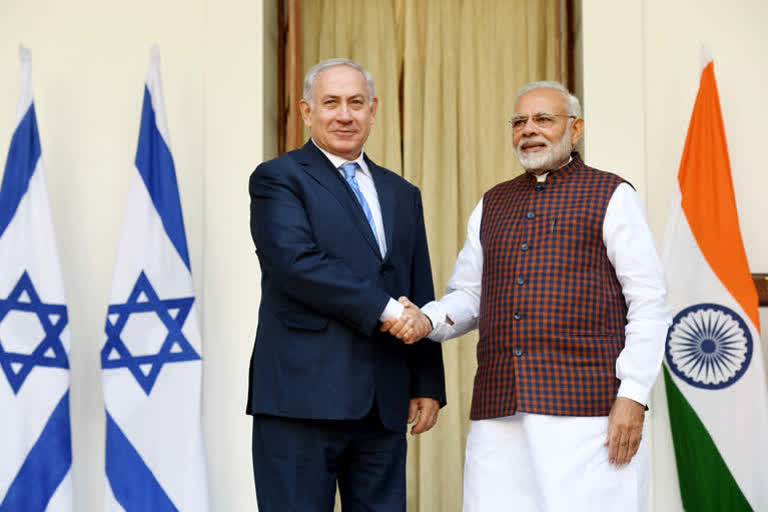New Delhi: The world of international relations has got another tool and it is called ‘drug diplomacy’ and India is now playing it big and smart even as it quietly flew a plane load of the much-in-demand hydroxychloroquine (HCQ) to its old friend Israel a few days ago.
With the novel coronavirus pandemic wreaking havoc, the world is looking at the anti-malarial drug HCQ as a possible medicine to treat the infected although its efficacy is still being argued upon.
And in an epochal time like this, India being the world’s biggest producer of HCQ—with 70 per cent of the global share—is too big an opportunity not to exploit to make diplomatic inroads.
That is why, on Tuesday, a Indian Air Force (IAF) C-130J ‘Super Hercules’ plane carrying five tons of HCQ quietly touched down in Cyprus on Tuesday before the cargo was driven to the factory premises of a pharmaceutical company called “Remedica” which is headquartered in Limassol, Cyprus, Israeli media reported. According to the reports, ‘Remedica’ was to manufacture the medicine for Israel.
Till now, Israel has reported more than 10,000 COVID-19 infections and 93 deaths due to the contagion.
The reports also said that Indian Ambassador to Israel Sanjib Singala “emphasized the friendship between Israel and India, mentioning that India also delivered the drug to the US”.
Read:India ready to do whatever possible to help friends: PM Modi
More than 20 countries have already requested India for supplies of HCQ. India produced 70 per cent of the world’s supply of HCQ.
Significantly, the very same day, the Indian government had lifted curbs on the export of HCQ that it had ordered on March 25 after the demand for the drug rose following the swift spike in the number of infected cases worldwide.
The easing of the HCQ exports happened a day after US President Donald Trump in his signature blunt style warned India of ‘retaliation’ in case India continued to restrict HCQ exports to US.
On the April 7 briefing at the White House, Trump said: “If he (PM Modi) doesn't allow it to come out. That would be OK. But of course, there may be retaliation. Why wouldn't there be.”
The very next day, on Tuesday, the external affairs ministry spokesperson Anurag Srivastava announced that the stock position of HCQ was found to be satisfactory and therefore export commitments could be met: “The stock position could allow our companies to meet the export commitments that they had contracted.”
Calling the earlier stand (March 25 notification) as ‘temporary’, the spokesperson said: “Our first obligation is to ensure that there are adequate stocks of medicines for the requirement of our own people. In order to ensure this, some temporary steps were taken to restrict exports of a number of pharmaceutical products.”
With an eye on the South Asian region, where it is trying to buttress its influence, India also announced that it would supply HCQ in appropriate quantities “to all our neighbouring countries who are dependent on our capabilities” besides those nations “particularly badly affected by the pandemic.” Sri Lanka and Nepal have already requested India for the drug.
‘Quinine’, on which HCQ is derived from, was invented in the early 19th century in Europe. With its soldiers frequently getting afflicted by malaria which was rampant in entire India, the British brought in ‘quinine’ by the bulk to India.
With the British army soldiers abhorring the bitter taste of ‘quinine’, it was later administered with an alcoholic beverage which gave rise to ‘gin and tonic’ a popular alcoholic cocktail.
Popular legends attribute the large number of breweries in and around Bangalore to the need for brewing alcoholic beverages that could be served with the ‘quinine’. And that is believed to have set up the basic infrastructure for the production of HCQ in India.
Till now, the contagion has claimed about 15.75 lakh COVID-19 positive cases and more than 96,100 deaths across the world. India has reported about 6,200 infections while about 200 have died.
